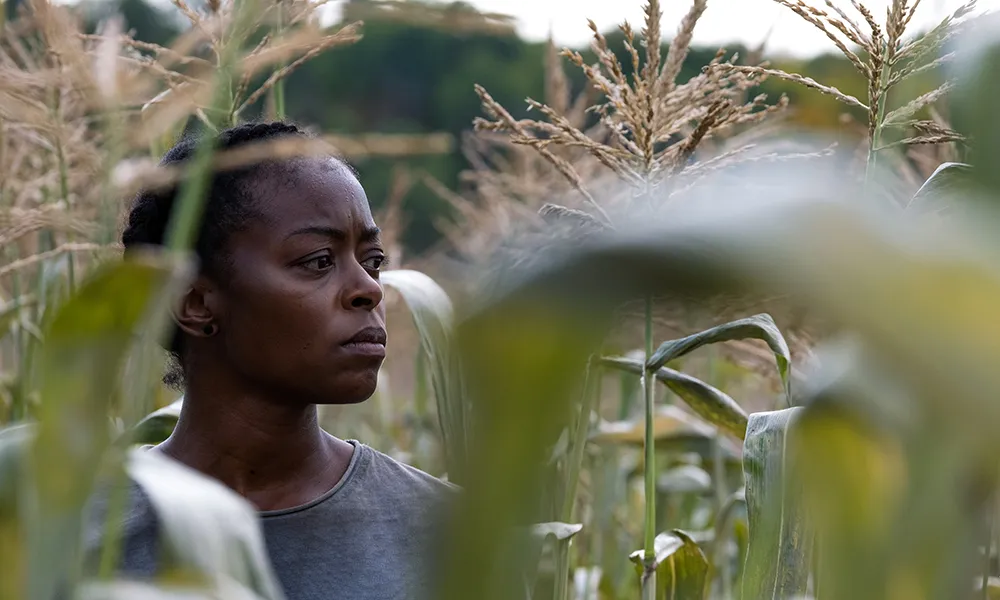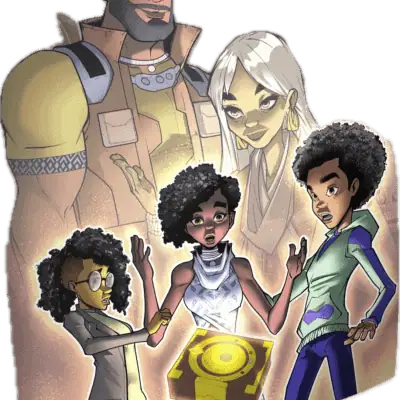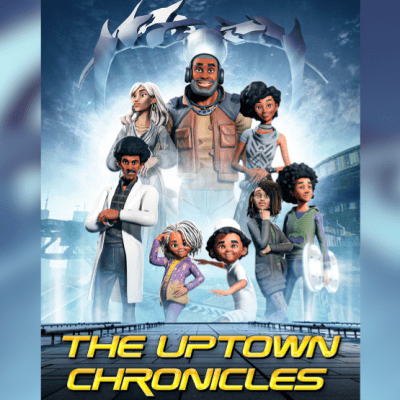A few years ago, as the COVID-19 pandemic upended daily life, director R.T. Thorne found himself grappling with “existential fears.” With supply chains collapsing and panic-buying in full swing, the Calgary-born filmmaker began to question the stability of the world as he knew it.
“If a sickness that we can’t even control knocks us off our rocker like that, are we really that safe? Are we really that firm in what we know?” Thorne contemplated. These questions led him to consider, “If everything shut down, could I provide for my kids? Could I grow food? Do I even know how to protect them?”
These anxieties ultimately inspired Thorne’s debut film, 40 Acres, which premiered recently at the Toronto International Film Festival. The post-apocalyptic thriller follows Hailey Freeman, a former military leader played by Danielle Deadwyler, who leads her family in a future devastated by famine. As a brutal gang of cannibals threatens to overrun their farm, Hailey finds herself at odds with her son Emanuel, played by Toronto actor Kataem O’Connor, as they disagree on the best way to survive in a collapsing world.
“At its heart, it’s a mother and son story,” says Thorne. “It’s a thriller that’s about two different ideologies of how to move forward in a family.”
While Hailey believes isolation is the key to their survival, Emanuel yearns for connection, a desire fueled by his encounter with a young woman from a nearby farm, played by Toronto-born Milcania Diaz-Rojas.
Thorne and co-writer Glenn Taylor weave this dystopian narrative with a broader metaphor about land ownership in North America. Hailey’s character descends from Black farmers who settled in Canada after the American Civil War, while her partner, played by Michael Greyeyes, is Indigenous.
“I wanted to make a story about a family I’ve never seen on screen before. It’s a blended Black and Indigenous family,” says Thorne.
According to Thorne, 40 Acres tackles several timely political and economic issues, including racial inequality, food insecurity, and Indigenous land rights.
“We’ve been in this space for almost a decade where socially there have been a lot of things that have been happening in the world that are causing a lot of people worry,” he says.
After eight years in development, Thorne describes the world premiere of his film at TIFF as a “dream come true.”
“I’ve been coming to this festival for over 20 years as a film lover, just seeing amazing films that just rocked my world,” he says. “I’m honored to be able to come here and have my debut film at the festival that I love.”
As an independent magazine with a small team, we rely on the support of our readers to keep JARO’s content free and accessible to everyone. Please support our ability to continue delivering the best of the African Diaspora with a donation as little as $1. Thank you!







